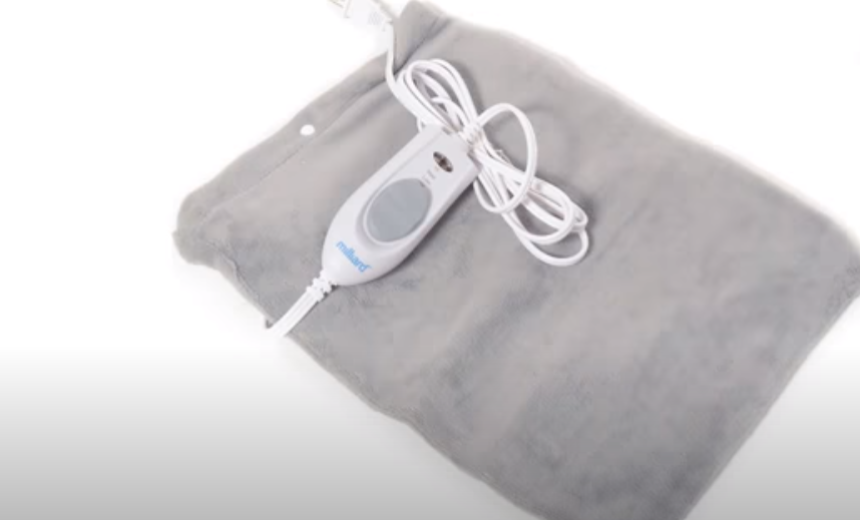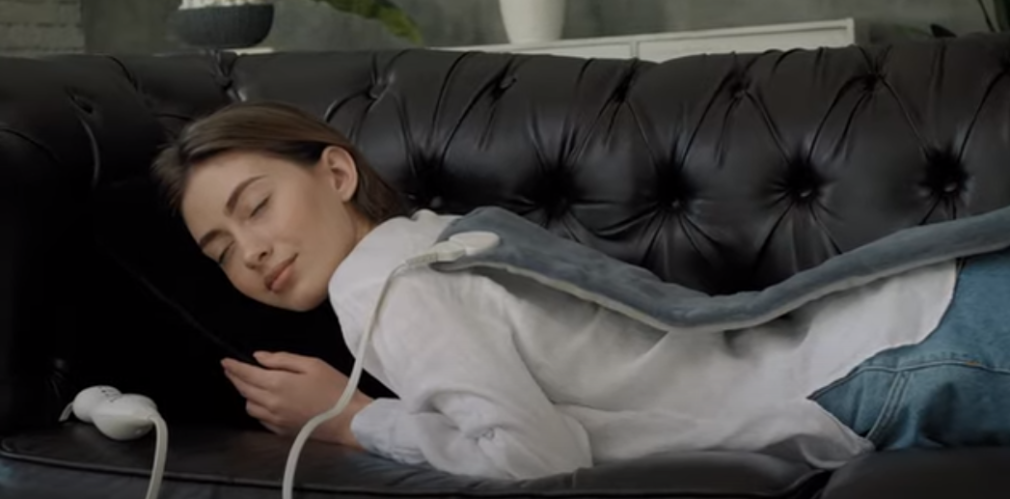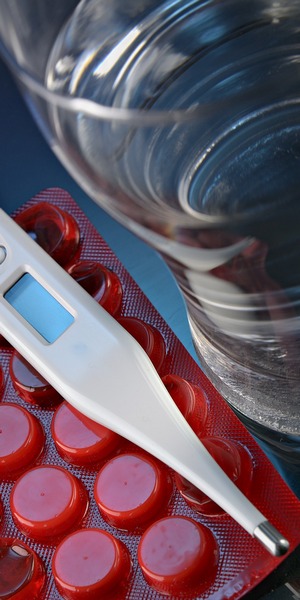Is It Dangerous to Sleep with a Heating Pad?

When it comes to getting a good night’s sleep, many people resort to various methods to increase comfort and relaxation. One popular option is the use of a bed warmer. While cozy warmth can be comfortable, it is important to understand the potential risks associated with sleeping with a heating pad.
In this article, we’ll look at the dangers and benefits of using a bed warmer while you sleep to help you make an informed decision about your sleep routine.
The Benefits of Sleeping with a Heating Pad
One of the main benefits of using a heating pad while you sleep is its ability to relax your muscles. Heat therapy can help relieve muscle tension, stiffness, and pain, making it a great option for people with sore muscles or chronic pain conditions.
- Improved Blood Circulation: Heat promotes blood flow, which can improve circulation and deliver oxygen and nutrients to muscles and tissues. Sleeping with a heating pad can potentially improve circulation, resulting in relaxation and rejuvenation;
- Improving sleep quality: Many people find that the gentle warmth of a heating pad can create a soothing environment that promotes better sleep;
- Pain relief: Heat therapy is commonly used to relieve pain, and sleeping with a heating pad can provide targeted relief to specific areas of discomfort. If you have aching muscles, joints, menstrual cramps, or general pain, the warmth from a heating pad can help relax muscles, increase blood flow, and reduce pain;
- Stress Reduction: The gentle heat emitted from the heating pad can have a calming effect on both the body and mind. It promotes relaxation and can help relieve stress and tension, making it easier to relax and fall asleep. The soothing sensation of the heating pad can be especially helpful for people who have anxiety or have difficulty relaxing before bed;
- Improve flexibility: If you wake up feeling stiff or stiff in your joints due to conditions such as arthritis, using the heating pad while you sleep can improve flexibility. The heat increases the elasticity of tissues, tendons, and ligaments, which can help improve joint mobility and range of motion. By reducing stiffness, you can experience greater comfort and ease of movement during the day;
- Comfort for those who like to sleep in a room with cool air: Some people naturally feel cold while sleeping, especially in cooler climates or during the winter months. A heating pad can provide an extra layer of warmth and comfort, helping to regulate body temperature and create a cozy sleeping environment. This can be especially helpful for those who have difficulty keeping warm and staying warm throughout the night;
- Faster recovery: If you have recently suffered a muscle injury or are recovering from intense physical activity, using a heating pad while you sleep can help with the recovery process. The heat promotes blood circulation, which helps deliver oxygen and nutrients to the injured area, facilitating healing and shortening recovery time. It can also help relieve muscle stiffness and soreness associated with exercise or injury;
- Relaxing and inducing sleep: The warmth from a heating pad can create a soothing and cozy environment that promotes relaxation. Relaxing your muscles and releasing the tension can help you relax and prepare for a restful night’s sleep. Many people find that the soft warmth is soothing and evokes a pleasant sensation, helping them fall asleep faster and get a better night’s sleep.

The cozy feeling helps induce a state of relaxation, making it easier to fall asleep and sleep through the night.
The Risks of Sleeping with a Heating Pad
One of the biggest risks associated with using a heating pad is the possibility of burns and skin damage. If the heating pad is too hot, or if you fall asleep and cannot adjust the temperature, prolonged exposure to high temperatures can cause burns, blisters, and even damage to the underlying tissue. This risk is especially great for people with hypersensitivity to heat, such as the elderly or people with certain medical conditions.
Here are some additional risks to consider when it comes to sleeping with a heating pad:
- Burns and Skin Damage: One of the most significant risks associated with using a heating pad is the potential for burns and skin damage. If the heating pad is too hot, or if you fall asleep and can’t adjust the temperature, prolonged exposure to high temperatures can lead to burns, blisters, and even damage to underlying tissues. This risk is especially important for people with hypersensitivity to heat, such as the elderly or people with certain medical conditions;
- Fire hazard: Leaving the heating pad unattended while you sleep increases the risk of fire. If the heating pad is defective or comes into contact with flammable materials such as bedding or pillows, it can ignite and cause a dangerous fire. It is very important to follow the manufacturer’s instructions, avoid using damaged or worn warmers, and never place them on flammable surfaces;
- Skin dryness and dehydration: Sleeping with a heating pad can cause excessive sweating, which can lead to dehydration and dry skin. The heat from the heating pad can make your body sweat more than usual, which will lead to fluid loss. It is important to stay hydrated by drinking enough water throughout the day and moisturizing your skin regularly to counteract dryness;
- Overheating and Hyperthermia: If the heating pad temperature is set too high or if it is faulty, it can lead to overheating of the body. Prolonged exposure to excessive heat can cause symptoms of hyperthermia such as dizziness, nausea, headache, and even heat stroke. It is very important to use a temperature-controlled heating pad and start at a lower temperature to avoid the risk of overheating;
- Electrical hazards: Sleeping with a heating pad requires the use of electricity, which poses certain risks. If the heating pad has frayed or damaged wires, it can pose a risk of electric shock or even fire. Inspect the heating pad regularly for signs of wear or damage and stop using it if you notice any abnormalities;
- Sleep disturbance: While some people find the warmth of the heating pad soothing and conducive to falling asleep, for others it can disrupt sleep patterns. Excessive heat can make it difficult to maintain a comfortable temperature, resulting in restless sleep or frequent awakenings. It is important to determine your personal comfort level and determine if using a heating pad improves or impairs your sleep quality.
To reduce these risks, it is important to follow safety rules and exercise caution when using the heating pad during sleep. Always read and follow the manufacturer’s instructions, make sure the heating pad is equipped with an automatic shutoff feature, and inspect it regularly for signs of damage or malfunction.
By using your heating pad responsibly and being aware of the potential risks, you can minimize the likelihood of adverse effects and sleep more soundly.
Using a heating pad while you sleep can provide a number of benefits, from pain relief and stress relief to improved flexibility and faster recovery. However, it’s important to weigh these benefits against the potential risks and take precautions to ensure safety and comfort.
Remember, if you have any concerns or special health conditions, it is advisable to consult a healthcare professional for personalized advice and recommendations regarding the use of warmers while sleeping.
Tips for Safe Use

First of all, it is imperative that you strictly follow the instructions provided by the manufacturer. Always read and follow the instructions provided by the manufacturer of the heating pad. Pay attention to the recommended duration of use, temperature settings, and any special safety rules.
- Use a timer: Consider using the heater with an automatic shutoff timer. This feature allows you to set a certain amount of time that the heating pad must remain on before it is turned off, reducing the risk of prolonged heat exposure;
- Adjust temperature: Make sure the heating pad has an adjustable temperature setting, and start with a lower setting to avoid the risk of burns. Increase the temperature gradually if you wish, but be mindful of your comfort and safety;
- Make sure there are no obstructions near or on the heating pad, including blankets, pillows, or pets. Keep the hot water bottle on a flat, stable surface to prevent it from accidentally shifting or falling while you sleep.
Before each use, check the heating pad for signs of wear, damage or malfunction. If you notice frayed wires, overheating, or any abnormalities, discontinue use and replace it immediately.
Conclusions
Although sleeping with a heating pad offers potential benefits, such as muscle relaxation and improved sleep quality, it is important to be aware of the associated risks. Burns, skin damage, fire hazards, and dehydration are all factors to consider.
By following safe use tips and keeping the potential dangers in mind, you can enjoy the comfort of a heating pad while minimizing the risks. Ultimately, the decision to sleep with a heating pad should be based on your personal comfort level and consideration of your specific health needs.








